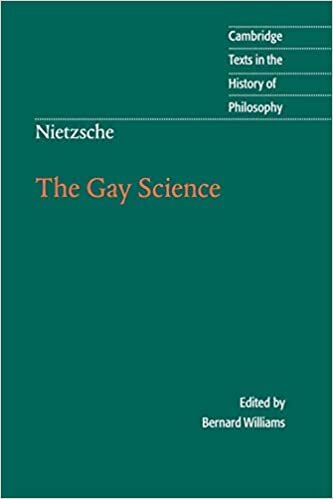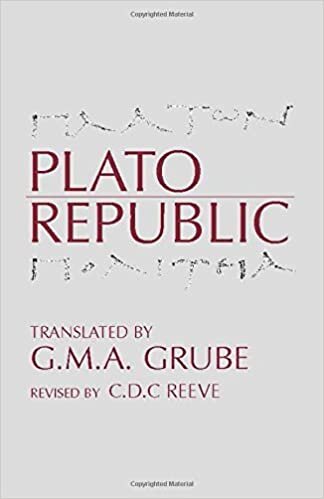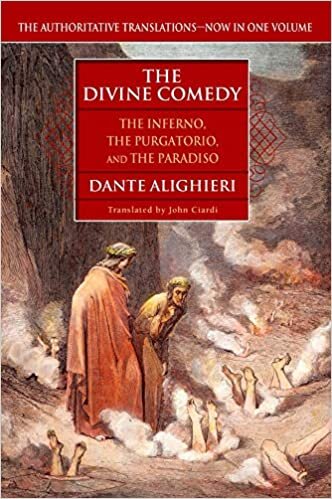Blogging Nietzsche—Nietzsche's Poetry: "Judgements of the Weary"
It’s impossible to appreciate the depths of Nietzsche’s short poems without a willingness to read them both metaphorically and as micro-encapsulations of his overall philosophy. One of Nietzsche’s favorite metaphors, the sun, which he often uses in a negative sense instead of with the traditional positive connotations of sunlight and illumination, features prominently in his short poem “Judgements of the Weary” (Nietzsche, The Gay Science, ‘Joke, Cunning, and Revenge’: Prelude in German Rhymes, No. 46):
46. Judgements of the Weary
The sun is cursed by all men jaded;
to them the worth of trees is — shaded!
The sun, for Nietzsche, is a dual metaphor, both for the quest for objectivity central to Western philosophy from Socrates and Plato onward as typified in the Allegory of the Cave (see Plato’s Republic, Book VII) and for divine illumination and the fullness of God in Christian theology.
The protagonist in Plato’s Allegory of the Cave breaks free of his chains and the darkness of the cave, clawing and scraping his way out of the cave toward the blinding but inspirational light of the sun, symbolizing universal truths and objective knowledge of eternal forms (e.g., Goodness, Love, Piety, Justice, etc.) obtained by the soul through the use of pure reason free of the corruptions of our earthly bodies.
And in The Divine Comedy by the 14th-century Italian poet Dante Alighieri the sun represents the fullness of God’s essence, which can be seen only by those permitted into Paradise on account of divine love—those who have clawed their way up the mountain of Purgatory toward the light emanating from Paradise beyond, purging themselves of their sinful habits in the process.
Although aiming toward the sunlight is historically seen in a positive light (pun intended), Nietzsche is highly critical both of Western philosophy and of Judaism and Christianity as religions and for their supposed morality, because he thinks that they strip us of our individuality and cause us to settle for mediocrity, conformity, and the averageness of the common man instead of individual greatness, artistic strength of character, and personal authenticity.
So, for Nietzsche, the goal of life is not to head toward the sunlight, that worn-out metaphor of the dawn of Western philosophy and the age of enlightenment, but instead to avoid the metaphorical sunlight as the gravest of dangers to your true nature as a fully-fledged individual with the ability to transcend the plebeian morality of the herd with its over-emphasis on rationality, objectivity, and morality as the essences of human nature.
Nietzsche’s use of the term “jaded” to describe those who hide from the sunlight is similarly in an ironic sense. We normally think of being jaded as being a bad thing. Nietzsche, however, is actually praising those who are jaded enough to break from the herd and turn their backs on the objectivity of Western philosophy and the false constraints of Judaism and Christianity.
To complete the inversion of these traditional metaphors, using sunlight in a negative sense and being jaded in a positive sense, Nietzsche adds the image of a tree. Trees, of course, depend on and grow vertically toward the sun as the source of light. Yet, as Nietzsche states in the last line of the poem, the worth of trees is not their tallness or their proud read toward the sun; the worth of trees is to provide a shadow within which to hide from the sun.
The trees mentioned in the second line themselves can be seen as metaphors for those philosophers and religious moralizers who stand tall with pride in their striving ever higher toward the sunlight of knowledge or the sunlight of the divine, all while providing the anti-model against which those with strength to stand apart from the forest can rebel and reclaim their individuality in the shadowy places of the world, and in the darker parts of life that only the bravest dare to explore.
The title of the poem, “Judgements of the Weary,” is worth considering as well. Constantly striving toward the sunlight is exhausting. Not only is the sunlight blinding, as even Socrates acknowledges in Plato’s Republic, but endlessly striving to be like every other tree in the forest makes one weary from the mediocrity and loss of authenticity that go along with it. Our souls long for a place to rest, Nietzsche is claiming. But that resting place is not in the sunlight; it’s in the shadows where we are utterly alone but fully ourselves.
For Further Reading:
The Gay Science by Friedrich Nietzsche
Republic by Plato
The Divine Comedy by Dante Alighieri










